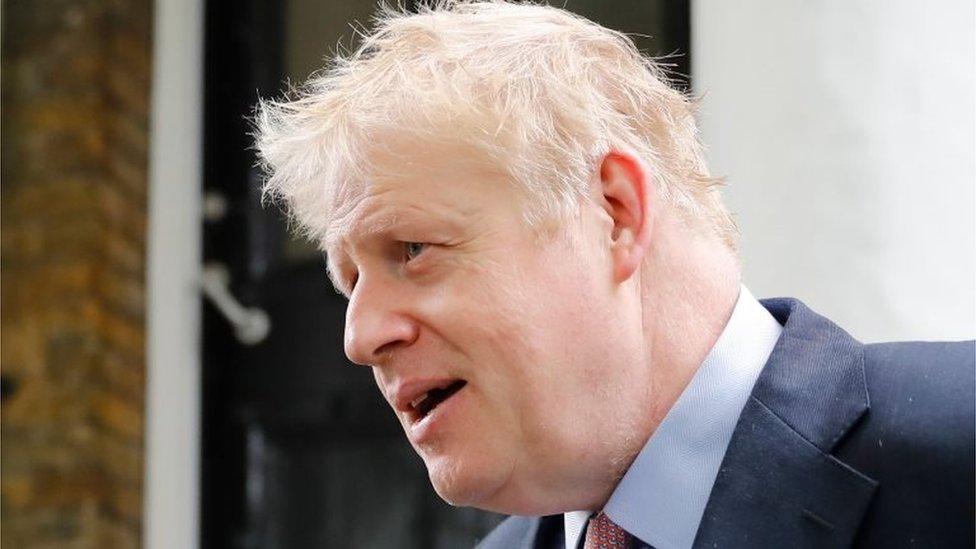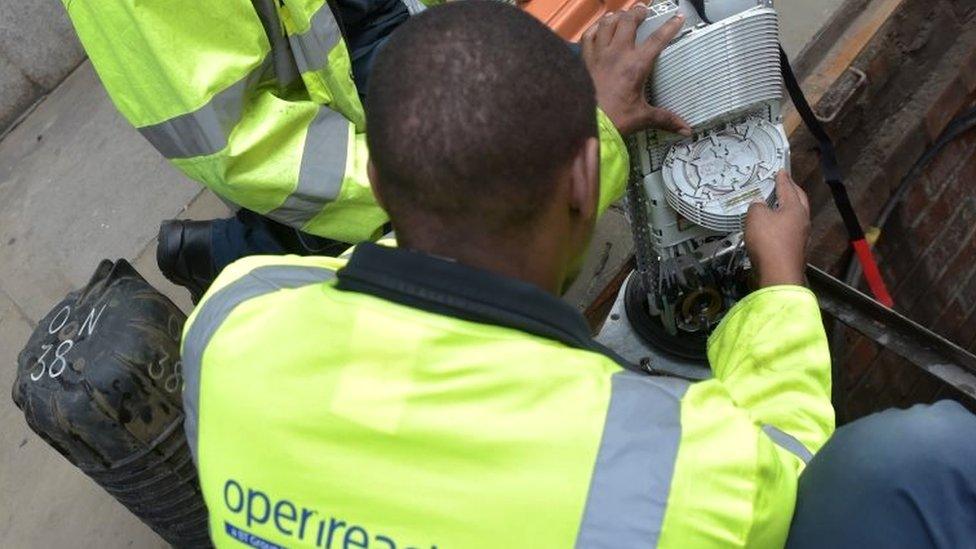Boris Johnson's full fibre plan needs more detail says industry
- Published
- comments

Boris Johnson wrote that it was "outrageous" that some places were having to wait until the mid-2030s to get full-fibre broadband
Broadband infrastructure providers want more detail from Boris Johnson after he pledged to accelerate the UK's roll-out of "full-fibre" internet connection.
The front-runner in the Conservative Party leadership contest has written that he wants the super-fast service to be available "for all by 2025".
That would be eight years ahead of the government's current goal.
Mr Johnson acknowledges there will be extra costs, but industry insiders say there are other considerations too.
'Laughably unambitious'
The Department for Digital, Culture, Media and Sport (DCMS) announced last year, external that every home in the UK should be able to get full-fibre broadband by 2033.
This involves installing high-speed optical cables to bring data right up to buildings without having to rely on slower copper for part of the journey. This should deliver speeds of one gigabit per second and beyond.
As of May, the telecoms regulator Ofcom said that only 7% of UK properties were currently served, external.
Mr Johnson wrote in the Daily Telegraph that the current deadline was "laughably unambitious", external.
"This will cost some public money, but the productivity gains are immense," he added.
"We will have to step up very substantially the rate at which we install full fibre - currently running at about 20,000 premises per week. But this is not only a huge economic opportunity - it is part of our moral mission to unite Brexit Britain."
The bulk of the work on full fibre is being done by BT's Openreach division, but other smaller firms are also involved including Virgin Media, TalkTalk and CityFibre.

Openreach says it is currently on course to offer full-fibre broadband to 15 million properties by the mid-2020s
"Boris Johnson's ambitious commitment to achieve full fibre coverage by 2025 is welcome, but needs to be matched with ambitious regulatory change, including reform of the fibre tax," responded the Internet Service Providers Association (Ispa).
The so-called fibre tax refers to how the government's Valuation Office Agency (VOA) treats fibre infrastructure as being commercial property, and applies business rates to it as a consequence.
The industry claims this acts as a disincentive to companies considering investing in the sector.
Others point to the fact that the government has yet to publish the results of a consultation held last year into whether developers and operators should be required to provide, external gigabit-capable connections to new-build homes.
Likewise, DCMS has yet to confirm whether it will press ahead with a separate proposal, external to force landlords to provide access to their properties if tenants request a full-fibre or other connection be installed. This would address operators' complaints that property owners often fail to respond, preventing work from being done.
"Building full-fibre technology to the whole of the UK isn't quick or easy," said a spokesman for Openreach.
"It requires £30bn and a physical build to more than 30 million front doors, from suburban terraces to remote crofts.
"We're determined to lead the way and there's a lot that government could be doing now to help us go further and faster."
A spokesman for Virgin Media declined to comment, citing the scarcity of details in Mr Johnson's article.